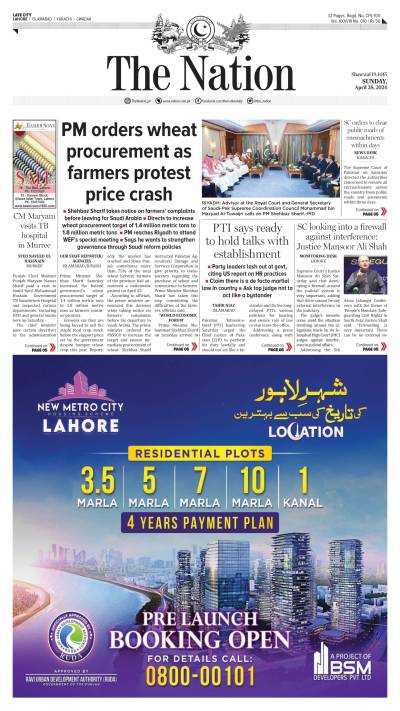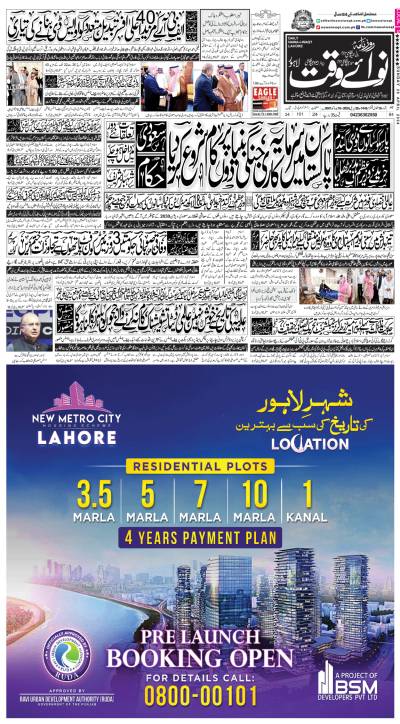WASHINGTON - A Muslim civil rights and advocacy organisation Thursday released the results of a survey indicating that 25 per cent of American Muslim registered voters were still undecided about who to vote for in this November’s US presidential election.
The new poll, conducted by an independent research firm on behalf of the Washington-based Council on American-Islamic Relations (CAIR), also indicated that 91 per cent of registered Muslim voters would go to the polls on November 6.
Sixty-eight per cent of the survey respondents said they would vote to re-elect President Obama. Seven per cent said they would vote for Mitt Romney.
“These results indicate that a large percentage of American Muslim voters are still open to appeals from presidential candidates and that American Muslims are potentially in a position to decide this year’s election,” said CAIR National Executive Director Nihad Awad.
Other findings released at CAIR’s joint news conference with the American Muslim Taskforce on Civil Rights and Elections (AMT) include: The top five issues of importance to American Muslim voters are jobs and the economy, education, health care policy, Medicare and Social Security, and civil rights.
About 55 per centof Muslim voters consider themselves moderate and 26 per cent liberal, while 16 per cent consider themselves conservative. The percentage of those who said they are closer to the Democratic Party grew from 49 per cent in a similar poll taken in 2008 to 66 per cent on Thursday. Affiliation with the Republican Party remained nearly the same, with a 1 per cent increase from 8 per cent in 2008 to 9 per cent today.
Nearly 49 per cent of respondents said that the Democratic Party was friendly towards Muslims, while 12 per cent said that the Republican Party was friendly. Conversely, 51 per cent of respondents said that the Republican Party was unfriendly towards Muslims, while 6 per centsaid that the Democratic Party was unfriendly.
About 35 per cent of respondents say they have experienced religious or ethnic profiling or discrimination post-9/11. The same percentage says they experienced kind treatment by neighbours or co-workers in that period. Half of those polled attend a mosque at least once a month.
Nearly 70 per cent of Muslim respondents say they have a four-year or graduate degree, compared to 34 per cent college attendance for the entire population. On international issues, 68 per cent of respondents say the US should provide support to those fighting for freedom in Syria and 76 per cent say the US and NATO made the right decision by intervening in the Libyan revolution.
When asked to name an organization that best represents the interests of American Muslims, 65 per cent of those who responded named CAIR.
As part of its non-partisan election activities, CAIR has distributed “MVP - Muslim Voter Power” get-out-the-vote posters and lawn signs to mosques and other Islamic institutions nationwide.
Meanwhile, President Barack Obama cast his ballot early in Chicago on Thursday afternoon, marking the latest episode in the battle between the presidential campaigns over which candidate has the early-voting advantage and what it means.
The Obama campaign has made early voting central to its get-out-the-vote efforts. The president voted at the Martin Luther King Community Center in Chicago.
Obama stopped in his hometown, between visits to three battleground states, to cast his ballot 12 days before Election Day and encouraged others to follow suit.
Obama was asked for identification and turned in his absentee ballot before moving on to the voting booth.
“Now ignore the fact that there’s no gray hair on that picture,” he told the official who inspected his driver’s license.
Earlier in the day, Team Obama sent out an email urging supporters to get to the polls before Election Day.
“This afternoon, I’m casting my ballot in my hometown of Chicago,” Obama says in the message. “I’m told I’ll be the first sitting president to take advantage of early voting. ... Look, this race is extremely tight. It’s going to come down to which side can more effectively turn out the vote in these final days, and early vote [sic] is a huge part of that. Whether people get out to vote this year, in this election, is even more critical than the last time around.”
Last week, the Obama campaign circulated a memo claiming to be well ahead of Romney among early voters in the critical battleground state of Ohio.
“Today we are ahead of where we were at this time against John McCain — and ahead of Mitt Romney,” national field director Jeremy Bird wrote. “Republicans are similarly talking up their ground game and early vote numbers, but their assertions rest on much shakier ground.”
The Bird memo pointed to four polls that show Obama with leads of between 19 and 52 points in Ohio among early voters and argued the demographics and geography of those who had voted early strongly favours the president.
A Time magazine poll released on Wednesday showed Obama leading Romney by a 2-to-1 ratio among those who have already voted.
The Bird memo set off a back and forth between the parties over who has the real early-voting advantage and what it means.
The Republican National Committee called the Obama campaign memo “panicked,” and argued that Republicans have been shrinking the president’s lead in Ohio early voting.
Sunday, April 28, 2024
25pc of Muslim voters undecided in US presidential polls
Pakistan recovers Rs84bln from power thieves, defaulters in crackdown
11:48 AM | April 28, 2024
Official held for hurling threats to principal
April 28, 2024
Eyes On the PM
April 28, 2024
Track & Trace
April 28, 2024
Solar Siege
April 28, 2024
Political Tightropes
April 27, 2024
Wave of Revolution
April 27, 2024
Border security
April 28, 2024
Cinema – a Catalyst for Change
April 28, 2024
Korangi’s challenge
April 27, 2024
US double standard
April 27, 2024
Political turmoil
April 27, 2024
ePaper - Nawaiwaqt
Advertisement
Nawaiwaqt Group | Copyright © 2024





